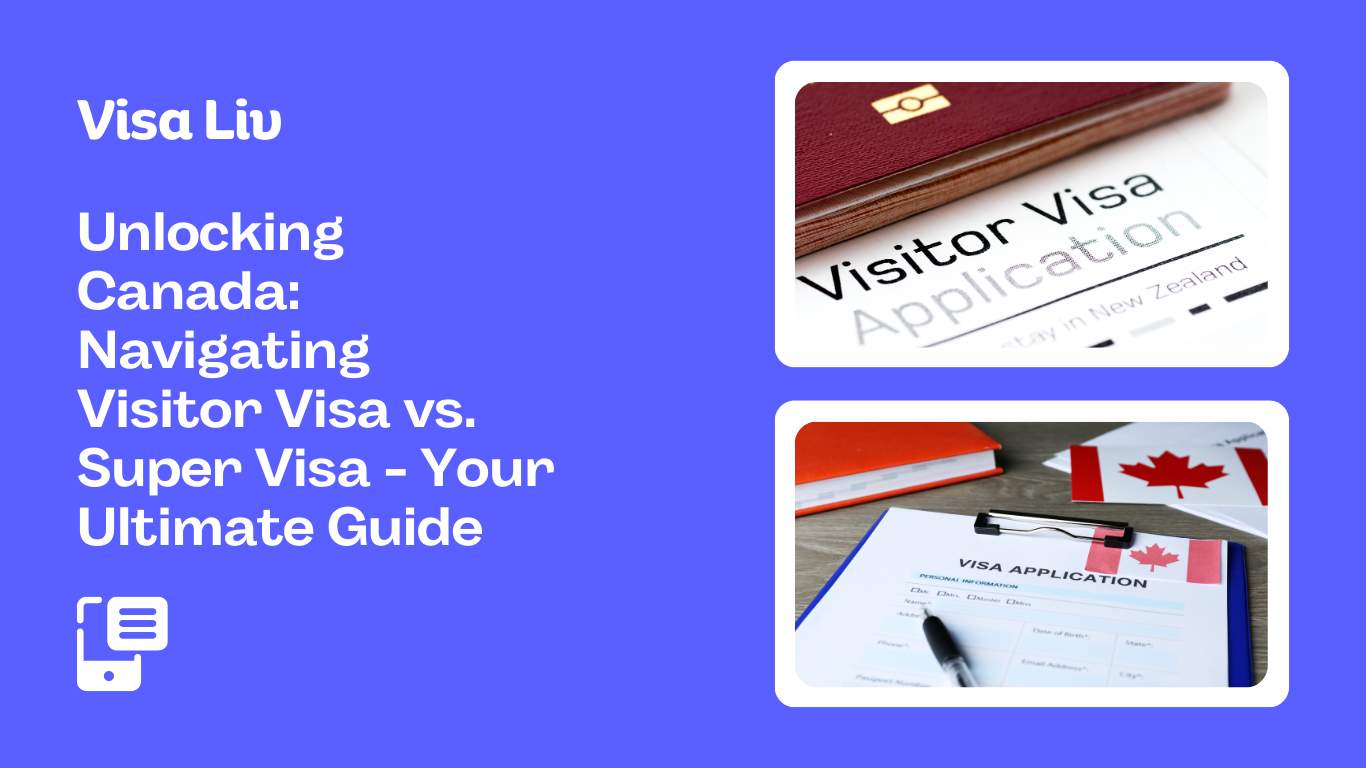Introduction:
Embarking on a journey to Canada and feeling perplexed about the visa options? This blog post aims to demystify the distinctions between the conventional Visitor Visa and the Super Visa, providing insights into eligibility criteria and the application process for the latter. Whether you’re a seasoned traveler, a parent, or a grandparent of a Canadian citizen or permanent resident, this guide will assist you in making an informed decision for your upcoming adventure.
Visitor Visa Overview:
The Visitor Visa, also referred to as a Temporary Resident Visa (TRV), is a prerequisite for most individuals entering Canada. It acts as an official document, certifying that you meet the necessary criteria for visiting the country. Typically granting a stay of up to 6 months, the Visitor Visa is indispensable for those transiting through Canadian airports or planning a brief visit.
Key Aspects of the Visitor Visa:
- Duration of Stay: Up to 6 months.
- Entry Document: Stamped in the passport or provided as a visitor record.
- Flexible Stay Period: The border services officer may allow a shorter or longer stay.
- Entry Requirements: Dependent on travel document type, issuing country, nationality, and travel method.
Super Visa Overview:
The Super Visa, categorized under the Visitor Visa, is tailored for parents and grandparents of Canadian citizens or permanent residents. The primary divergence lies in the extended duration of authorized stay, enabling eligible individuals to visit family for up to five consecutive years without renewing their visitor status.
Key Highlights of the Super Visa:
- Duration of Stay: Up to 5 consecutive years, with multiple entries allowed.
- Eligibility: Limited to parents and grandparents of Canadian citizens or permanent residents.
- No Lottery: In contrast to the Parents and Grandparents Program (PGP), the Super Visa does not entail a lottery system.
- Support Requirement: Children or grandchildren sponsoring the Super Visa must meet income requirements and provide financial support.
Super Visa Eligibility Requirements:
To meet Super Visa eligibility, applicants must:
- Be a parent or grandparent of a Canadian citizen or permanent resident.
- Not be inadmissible based on criminality or health (a medical examination is mandatory).
- Maintain adequate ties to their home country.
- Have a child or grandchild in Canada meeting income requirements.
- Provide evidence of financial capability through documents like tax assessments, employment letters, and bank statements.
- Obtain medical insurance with at least $100,000 emergency coverage for a minimum of 1 year.
Application Process:
Upon confirming eligibility, applicants should:
- Assemble the necessary documentation, including a letter of invitation from the child or grandchild.
- Submit the application to the Canadian visa office responsible for their residence outside Canada.
- Ensure the medical insurance aligns with specified criteria.
- Await the processing of the application by Immigration, Refugees, and Citizenship Canada (IRCC).
Conclusion:
Grasping the disparities between the Visitor Visa and Super Visa is pivotal for a seamless and triumphant visit to Canada. Whether opting for a standard short-term stay or an extended family visit, the choice between visas hinges on your specific circumstances. Diligently review eligibility requirements and adhere to the application process to ensure a remarkable Canadian journey.
Please visit our website www.visaliv.com for more details, where you will find answers to all of your visa and immigration-related questions.
Thanks,
VisaLiv Team


